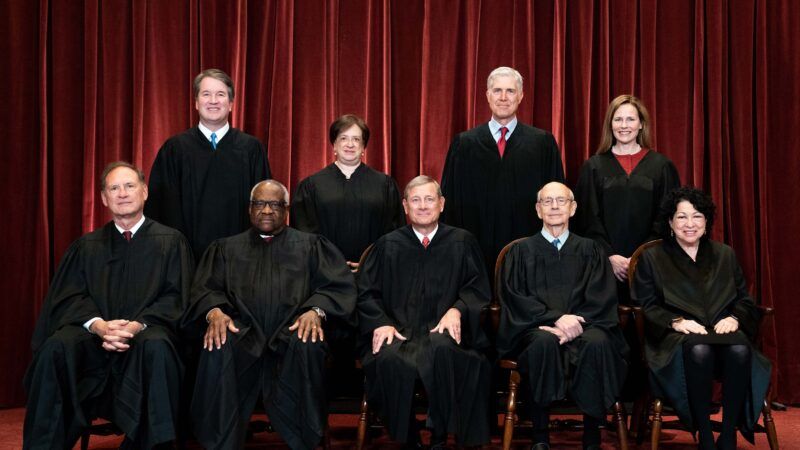Supreme Court Agrees to Fast Track Review of Texas Abortion Law
The justices will hear United States v. Texas and Whole Woman’s Health v. Jackson on November 1.

Last month, the U.S. Supreme Court declined to block Senate Bill 8, the Texas law that bans all abortions after the sixth week of pregnancy, from going into effect. "The applicants now before us have raised serious questions regarding the constitutionality of the Texas law at issue," said the unsigned 5-4 majority opinion in Whole Woman's Health v. Jackson. But because of the "complex and novel antecedent procedural questions also presented," that majority said, it would not take any action at that time.
Today, the Supreme Court agreed to tackle those procedural questions head on. What is more, the Court agreed to do so on an unusually fast track. The justices will hear oral arguments in two related cases about the Texas abortion law on November 1, just 10 days from now.
The legal dispute centers on the law's unique structure. Normally, when a state regulates a particular activity, a state official handles the enforcement and then answers for the law in federal court if a constitutional challenge is filed. The Texas law was structured to avoid all of that. It says that the abortion ban "shall be enforced exclusively through…private civil actions." Specifically, "any person" may sue "any person who…aids or abets the performance or inducement of abortion" and win a $10,000 award plus legal fees if the civil suit is successful. The whole idea behind the Texas law was to let state officials dodge legal accountability in federal court.
The Supreme Court today agreed to hear two cases, Whole Woman's Health v. Jackson and United States v. Texas, both of which deal with aspects of S.B. 8's unique structure. In Whole Woman's Health, the Court will consider "whether a State can insulate from federal-court review a law that prohibits the exercise of a constitutional right by delegating to the general public the authority to enforce that prohibition through civil actions." In U.S. v. Texas, the Court will consider whether the federal government "may bring a suit in federal court and obtain injunctive or declaratory relief against the State, state court judges, state court clerks, other state officials, or all private parties to prohibit S.B. 8 from being enforced."
In other words, the Supreme Court will not be considering abortion itself on November 1; rather, it will be considering the legality of the Texas scheme and asking what sort of parties may challenge that scheme in court.


Show Comments (54)